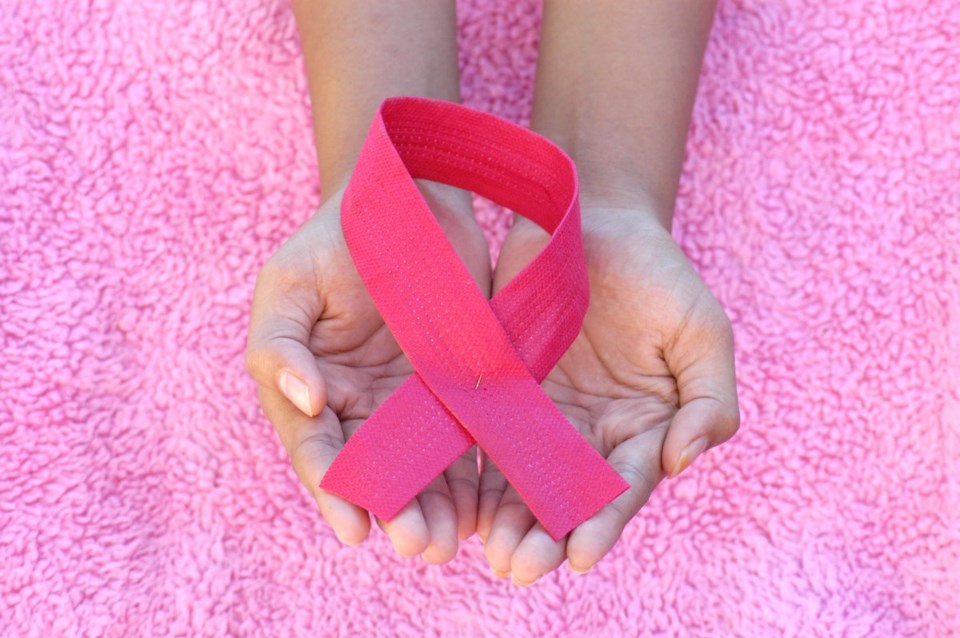Many women have an emotional vulnerability when it comes to breast cancer fundraisers.
One in eight women are expected to be diagnosed with breast cancer during their lifetime; breast cancer accounts for one-quarter of new cancer cases in Canada.
October is Breast Cancer Awareness Month. Many fundraising initiatives, including pink ribbon campaigns, traditionally take place this month.
“Due to the COVID-19 pandemic, many organizations have cancelled their usual fundraising events and awareness campaigns and are now inviting donors to support online. However, [there is also] an increase in the number of fake websites and social media accounts, impersonation scams on organizations, and phishing attacks,” says the Better Business Bureau.
It is urging donors to exercise caution when supporting a charity or fundraising initiative.
Before you click the “donate now” button, the BBB offers this advice.
· Shop smart. Some companies donate a portion of the sale of specific items, designated with pink ribbons or packaging. When shopping for pink ribbons or “pink ribbon” items, see if the promotion is transparent about which charity it will benefit and how much of the purchase will be donated. Watch out for vague claims of proceeds benefiting unspecified charities. Vague descriptions of how the collected funds will be used should be seen as a red flag.
· Be wary of questionable and unsolicited emails. Watch out for spam messages and emails that claim to link to a recognized organization. Hover your mouse over a link to determine its true destination. Many websites and organizations that are created overnight to allegedly support well-known initiatives turn out to be scams.
· Do not click on pop-ups soliciting for donations. Do not succumb to the pressure to make an immediate giving decision, regardless of how enticing the ad might be. Pop-ups may include malware as well as links that take donors to fake websites.
· Think twice about unknown social media appeals. Watch out for private messages soliciting your support. Stay away from any offers and invitations that sound like a quick way to get money or benefits; have no paper trail; require cash only; and in some cases, prevent you from sharing details of the transaction with anyone.
· Do research on the charity. Fake websites with the right look and feel can be set up quickly, so get background information before donating. If you are considering a donation to a charity that is not familiar to you, go to BBB's Give.org to view its charity report. Pay close attention to the charity name, as fraudsters sometimes use names similar to those of established organizations. Donors should also check with the Canada Revenue Agency (CRA) to see if the charity is registered.
· Look for signs of trustworthiness on the charity's website. Check the website for details on their location, contact information, mission, program, official registration, goals, and finances. If donors can make contributions through the website, there should also be details about their privacy policy. If all this information is not readily available, treat this as a red flag. Also, watch for bad grammar, fuzzy images, and social media links that do not work.
· Check the website URL. Too many times, consumers and donors have been tricked into spending money on a fake website because they did not pay close attention to the URL. Scammers are notorious for creating URLs that are one character different from the authentic site. Also look for the lock icon and ensure the URL starts with https:// (the 's' means the site is secure and the information is encrypted).
· Participate carefully. Some charities are hosting virtual fundraising events in addition to marketing promotions. If this interests you, gather all the important information before signing up. Is there a participation fee or are you required to sign up a minimum number of supporters? Always research the charity or group organizing the event before you register. Find out how they will be using and protecting your personal information.
· Exercise caution on crowdfunding sites. Scammers like setting up crowdfunding accounts to raise money for themselves under the guise of helping others. If you decide to contribute through crowdfunding, it is safest to give to people you personally know. Remember that crowdfunding sites are not agencies and do not issue tax receipts. Check the terms, procedures and conditions of the crowdfunding platform to find out if they review the posts for scams, if the posts clearly describe the intended use for funds, and what processing fees may be subtracted by the site when donations are made, so you know in advance how your donation might be affected. Clarify if the contributions are being collected for distribution to another organization. If so, consider cutting out the middleman and make a direct donation to the designated organization on their website instead.
· Use a credit card. Avoid donating cash and be wary if a platform asks you to contribute using gift cards, wire and/or email transfer or cryptocurrency.
· Take action. If your preferred charity is not holding any events or promotions this month, contact them directly to see how you can volunteer or donate on your own time. Every type of contribution helps!
If you are the victim of a scam, report your experience to BBB Scam Tracker. "Your report can help others to stay informed and avoid similar scams," says the BBB.



